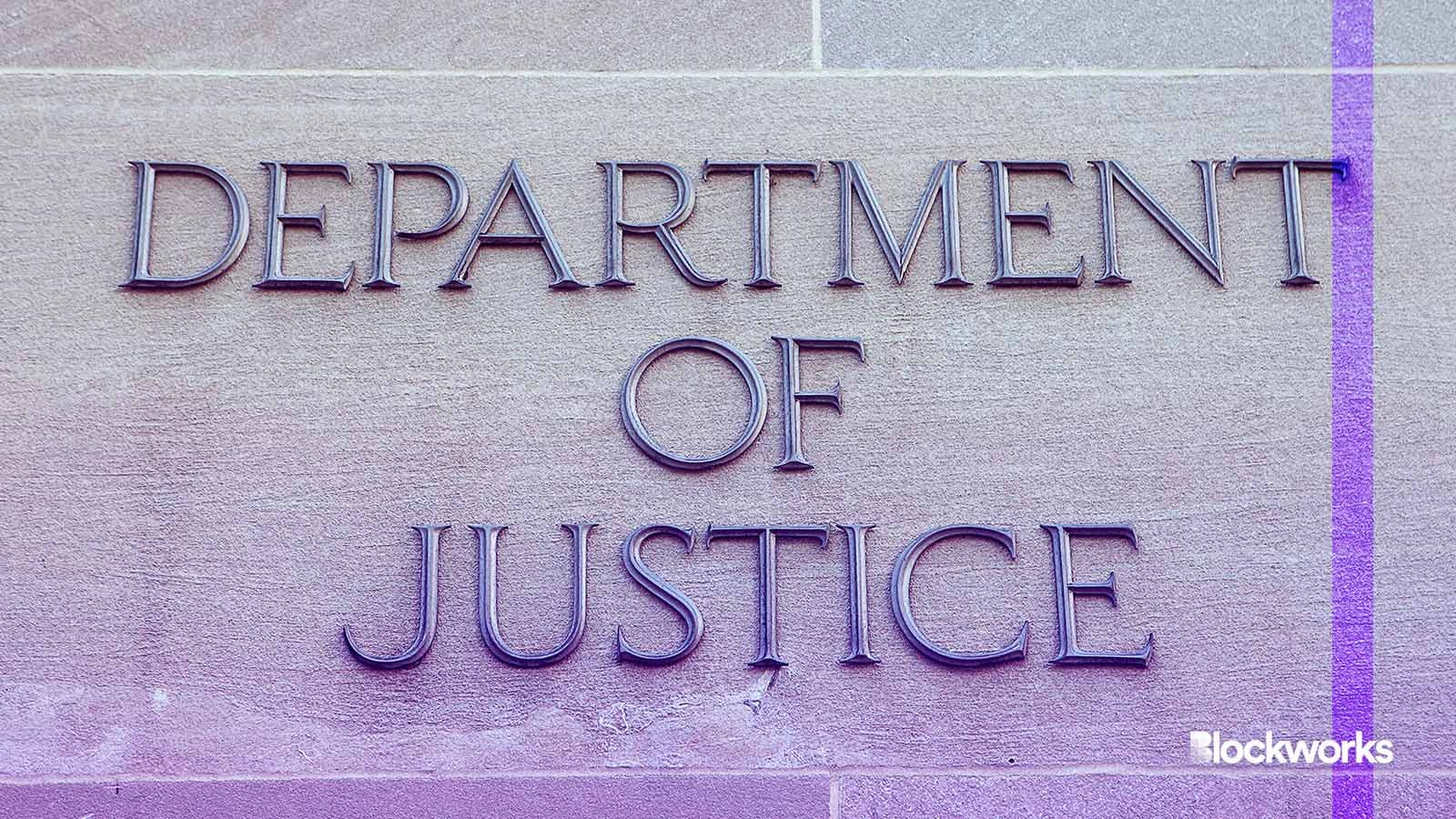DOJ moves 30K BTC connected to Silk Road seizure
DOJ wallet makes small Coinbase transfer, potentially hinting at an upcoming sale of BTC originally confiscated during the takedown of the Silk Road

Mark Van Scyoc/Shutterstock modified by Blockworks
More than 30,100 bitcoin linked to the Silk Road hack and under the control of the US government appeared to be on the move Tuesday.
A wallet known to be owned by the US Department of Justice initiated a transfer of 0.001 BTC – around $65 as of Tuesday’s prices – to a Coinbase wallet. Given the small amount, on-chain sleuths speculate that it could have been a test transfer in preparation for a larger sale of the long-held coins.
When large sums of bitcoin are moved, especially amounts linked to high-profile cases, it often involves a series of calculated steps to ensure security and compliance. In such cases, a small test transfer is a common preliminary measure, used to confirm that the transfer pathway is secure and operational before moving the entire sum. This helps the sender to verify that the recipient’s address is accurate without risking the full amount.
Despite the small amount intended for the test, the transaction required moving a much larger lot of 30,175 BTC that was previously part of a single input, reflecting the full balance of a prior transaction. The majority of these coins were then returned to the government’s wallet.
This process is inherent to how Bitcoin transactions work: If an input is used in a transaction, it must be spent in its entirety. The excess, not allocated to the transaction’s recipient, is sent back to the sender as change. This ensures that every bitcoin remains accounted for in the blockchain’s ledger, helping to maintain continuity, traceability, and the integrity of on-chain ownership across transactions.
This is not the first instance of the US government moving confiscated bitcoin to a third-party address. Back in March 2023, officials transferred a significant sum of bitcoin recovered from dark web activities, including an amount similarly directed at a Coinbase wallet.
The US government is known to have used Coinbase to sell off bitcoin connected to the Silk Road bust in the past. In June 2023, officials sold nearly 10,000 coins, which amounted to around $215M at the time of the sale.
The Silk Road, an online black market best known today for its role in the third-party sale of illicit drugs, was shut down by the FBI in October 2013. Its founder, Ross Ulbricht, was arrested and a large amount of bitcoin was confiscated as part of the crackdown. Ulbricht was later convicted of money laundering, computer hacking, and conspiracy to traffic narcotics in February 2015. He is currently serving a double life sentence plus forty years without the possibility of parole.
Ulbricht recently marked a decade of imprisonment following his sentencing. His case continues to draw attention, particularly from the Web3 and libertarian communities, highlighting the debate over the fairness of his punishment and the broader implications for internet freedom.
In 2022, it was reported that Ulbricht’s $183 million debt to the US government would be cleared through the sale of bitcoin seized in connection to the Silk Road case. This development came amid ongoing calls for clemency or a commutation of Ulbricht’s sentence, supported by over 250 organizations and hundreds of thousands of signatories on a petition seeking his release.
Despite two unsuccessful appeals to the Supreme Court, Ulbricht’s family, particularly his mother Lyn Ulbricht, continues to campaign for his freedom. They’ve sought to shift the narrative around his involvement with the Silk Road, emphasizing alleged investigative abuses that occurred during his trial, as well as the seemingly disproportionate nature of his sentence compared to others involved in similar activities.
Casey Wagner contributed reporting.
Get the news in your inbox. Explore Blockworks newsletters:
- The Breakdown: Decoding crypto and the markets. Daily.
- 0xResearch: Alpha in your inbox. Think like an analyst.






